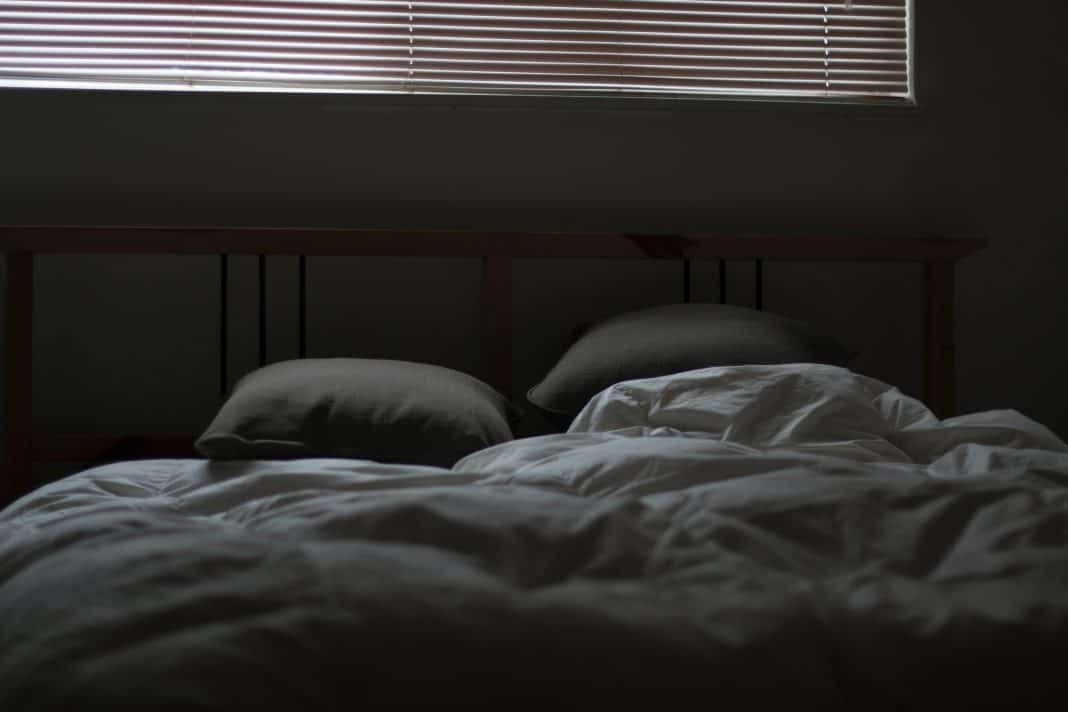I remember the first time the night terrors started. I don’t recall exactly what the first one was, but the one that stands out the most was seeing a confederate soldier standing in the bedroom and the next thing I know my husband is holding me and trying to wake me up. Normally, I have to have the room completely dark in order to sleep, but after waking up from a night terror there was no way I could turn the light back off. The fear (the terror) would stay with me long after the image faded. There were many over that period, I saw my dead grandmother, I saw weird random shapes zooming in through the window, I saw scary people (and people who shouldn’t have been scary at all). That period of night terrors lasted several months during 2008. Thankfully, they went away as fast as they started, once we determined what was causing them.
What are night terrors?
It’s important to understand that night terrors are very different than the common nightmare which occurs during REM sleep. Night terrors typically occur during non-REM sleep and may be caused by a slight waking during the transition between sleep stages. Because parts of your brain are still asleep and parts are awake, it may be that a part of the dream you were having seeped into your consciousness as you wakened slightly, making those elements appear in the real world around you. This gives a whole new understanding to “Nightmare on Elm Street” doesn’t it?
Night terrors are most common in small children and may be the reason why you find your child screaming in the middle of the night certain that there is a monster in the closet, or a person looking in the window, even though that window is closed with a blind over it so that the child couldn’t see the person if they were really out there. While they are most common in children, night terrors can also occur in adults, although they are extremely rare.
Night terrors are not just difficult for the person who experiences them, they are hard on everyone who has to live with that person. The screams that typically accompany the night terrors will wake anyone in the house, and may wake the neighbors depending on how close they are. I’ve woken up with sore throats from the screams that accompany my night terrors.
A person experiencing a night terror is often difficult to wake. They are screaming yet they are asleep. They are seeing the room around them yet they are not fully conscious.
What causes night terrors?
The most common cause of night terrors is simply stress. But, as I found, there are other causes. A number of medications can cause night terrors, including antihistamines which disrupt the sleep cycles. Some blood pressure medications can also cause night terrors. That bout of night terrors I suffered in 2008 was the result of antihistamines. The night terrors returned again just a few months ago and while they disappeared just as quickly I’m still unsure of the cause. It may have been a blood pressure medication, or even stress.
Night terrors have also been linked to migraines, restless leg syndrome, gastric reflux, and sleep apnea. Adults who suffer from night terrors also commonly have a history of anxiety or depression. It is unknown if these links show a potential cause and effect, or if it’s simply a matter of having one increases the likelihood of having the other.
Can you stop night terrors?
Children who suffer from night terrors typically outgrow it. Adults, like myself, that live with night terrors may not be so lucky. If you can find the cause you might be able to stop the night terrors by removing it.
Some suggestions include waking the person up about 90 minutes after they fall asleep, this is the time they would usually wake with the night terror. Doing so can prevent the night terror, but it can also disrupt their sleep cycles and there’s no guarantee they won’t just have the night terror during a later cycle. Some sleep medications can also help prevent night terrors, but again these disrupt the sleep cycle, which can lead to daytime sleepiness and mental fogginess.
Sometimes they just stop on their own. This is typically the case for children who eventually “outgrow” the night terrors.
If you are an adult with night terrors, take a close look at the medications you are using. Research each one to see it may disrupt sleep cycles, or cause night terrors. And, don’t be embarrassed to talk to your doctor about what you are dealing with. He may be able to help you find the answer and stop the night terrors.



